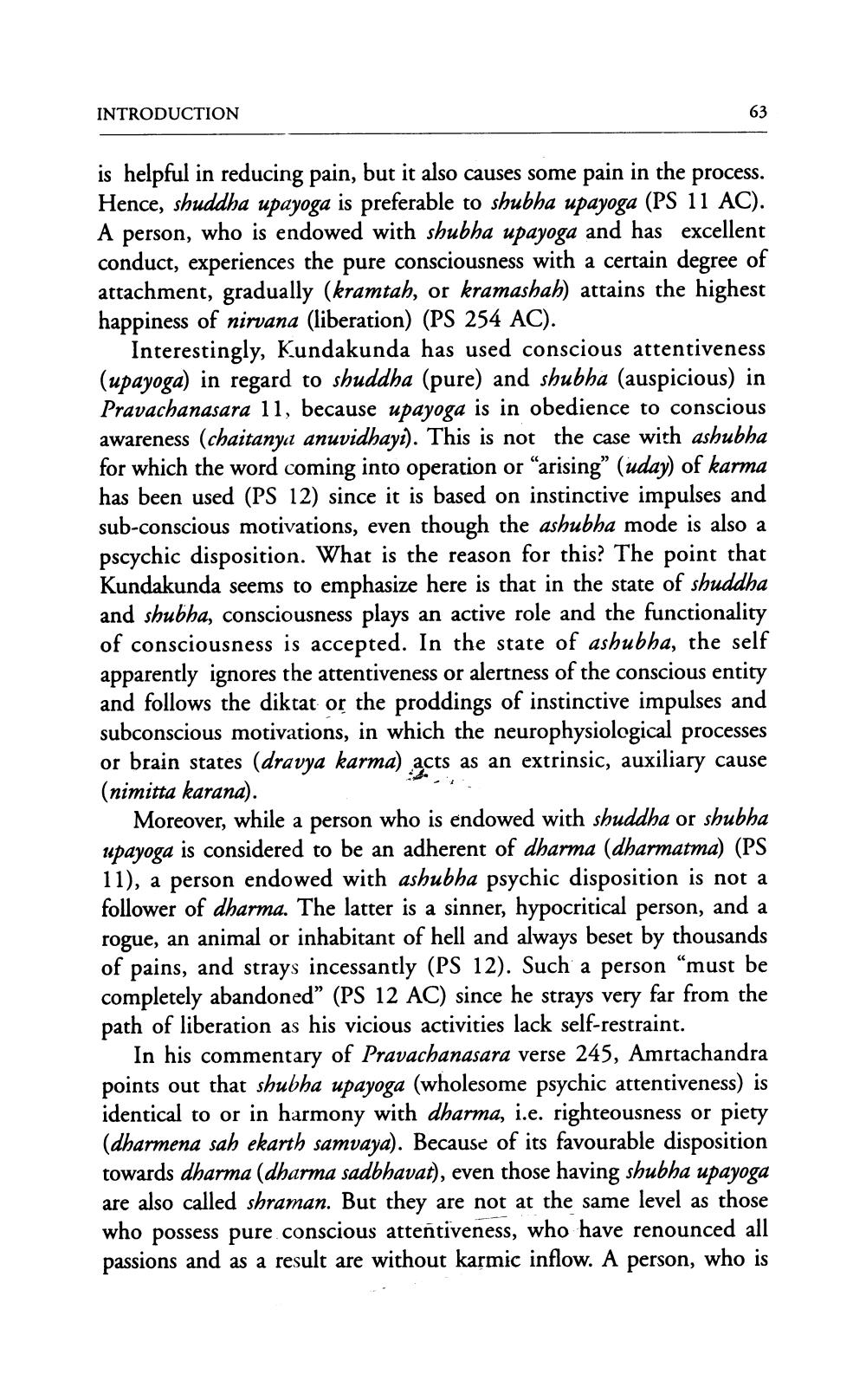________________
INTRODUCTION
is helpful in reducing pain, but it also causes some pain in the process. Hence, shuddha upayoga is preferable to shubha upayoga (PS 11 AC). A person, who is endowed with shubha upayoga and has excellent conduct, experiences the pure consciousness with a certain degree of attachment, gradually (kramtah, or kramashah) attains the highest happiness of nirvana (liberation) (PS 254 AC).
Interestingly, Kundakunda has used conscious attentiveness (upayoga) in regard to shuddha (pure) and shubha (auspicious) in Pravachanasara 11, because upayoga is in obedience to conscious awareness (chaitanya anuvidhayi). This is not the case with ashubha for which the word coming into operation or "arising” (uday) of karma has been used (PS 12) since it is based on instinctive impulses and sub-conscious motivations, even though the ashubha mode is also a pscychic disposition. What is the reason for this? The point that Kundakunda seems to emphasize here is that in the state of shuddha and shubha, consciousness plays an active role and the functionality of consciousness is accepted. In the state of ashubha, the self apparently ignores the attentiveness or alertness of the conscious entity and follows the diktat or the proddings of instinctive impulses and subconscious motivations, in which the neurophysiological processes or brain states (dravya karma) acts as an extrinsic, auxiliary cause (nimitta karana).
Moreover, while a person who is endowed with shuddha or shubha upayoga is considered to be an adherent of dharma (dharmatma) (PS 11), a person endowed with ashubha psychic disposition is not a follower of dharma. The latter is a sinner, hypocritical person, and a rogue, an animal or inhabitant of hell and always beset by thousands of pains, and strays incessantly (PS 12). Such a person “must be completely abandoned” (PS 12 AC) since he strays very far from the path of liberation as his vicious activities lack self-restraint.
In his commentary of Pravachanasara verse 245, Amrtachandra points out that shubha upayoga (wholesome psychic attentiveness) is identical to or in harmony with dharma, i.e. righteousness or piety (dharmena sah ekarth samvaya). Because of its favourable disposition towards dharma (dharma sadbhavat), even those having shubha upayoga are also called shraman. But they are not at the same level as those who possess pure conscious attentiveness, who have renounced all passions and as a result are without karmic inflow. A person, who is




